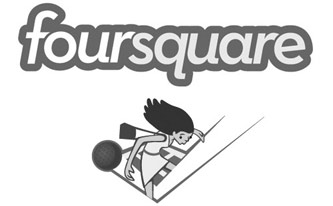Helpful social media - Foursquare

Foursquare (foursquare.com) is a social networking tool and game based on actual geophysical locations. Users check in to different locations — called "venues" — and collect points and badges for exploring the world around them.
Foursquare is available across platforms on cell phones, and was early into the trend of combining real-world usability with the style and play of a mobile game. It promotes an awareness of the space around you, and motivates continued use from individuals.
Foursquare started out in 2009, exclusively available in 100 select cities. As of January 2010, however, Foursquare opened up to locations all around the world. In situations where venues don't have existing entries, users are able to add them directly.
As you "check in" to places you frequent, you are awarded points based on the number of check-ins you amass during a given day, and whether or not you have visited that venue before. Additionally, you will earn badges specific to achievements you unlock while you play, like certain numbers of check-ins per day, or frequenting certain businesses.
Additionally, some businesses and cities have their own exclusive badges, so the idea of exploration is further promoted in order to find them. Many badges can only be achieved by attending certain events, or on specific dates; the Foursquare staff is secretive about how to unlock many badges, and no complete list of badges exists, at least officially (though you can find a few online).
How it works
Locations are submitted to Foursquare as venues, to which users can check in upon their arrival. There, users can leave tips for others based on their own experiences. Some businesses have gotten on board, offering specials and discounts for users.
Tips are available to add to a todo list, and as each one is crossed off, a user's name is added to reinforce the tip. Badges are available to be won for crossing items off of your list.
Why it's useful (or not)
Though often times the only way to get specials is to become the "mayor" of a venue (most frequent visitor), having first-person advice about places is appealing. And Foursquare easily networks with your Facebook and Twitter accounts, allowing you to check in and network across the board with your existing contacts.
Foursquare isn't without its flaws, however. The game aspect is only going to be fun if you make a habit out of constantly visiting new places, otherwise the process can quickly become dull and repetitive.
Additionally, Foursquare has become the centre of safety concerns, as broadcasting your location can compromise your privacy. Since it can sync with your other online services, it's easy to let the whole world know precisely where you are at a given time — which is the point, sure, but there are people that you would rather not have that information, right?
To be safe using Foursquare (or similar geosocial services), it's important never to check in at a location that compromises your privacy or the privacy of your loved ones — like your home, your girl- or boyfriend's apartment or your kid's school. Also, check in to a venue just before you leave it, so that you're still able to reap the benefits of being there without running into anyone you don't want to see.













